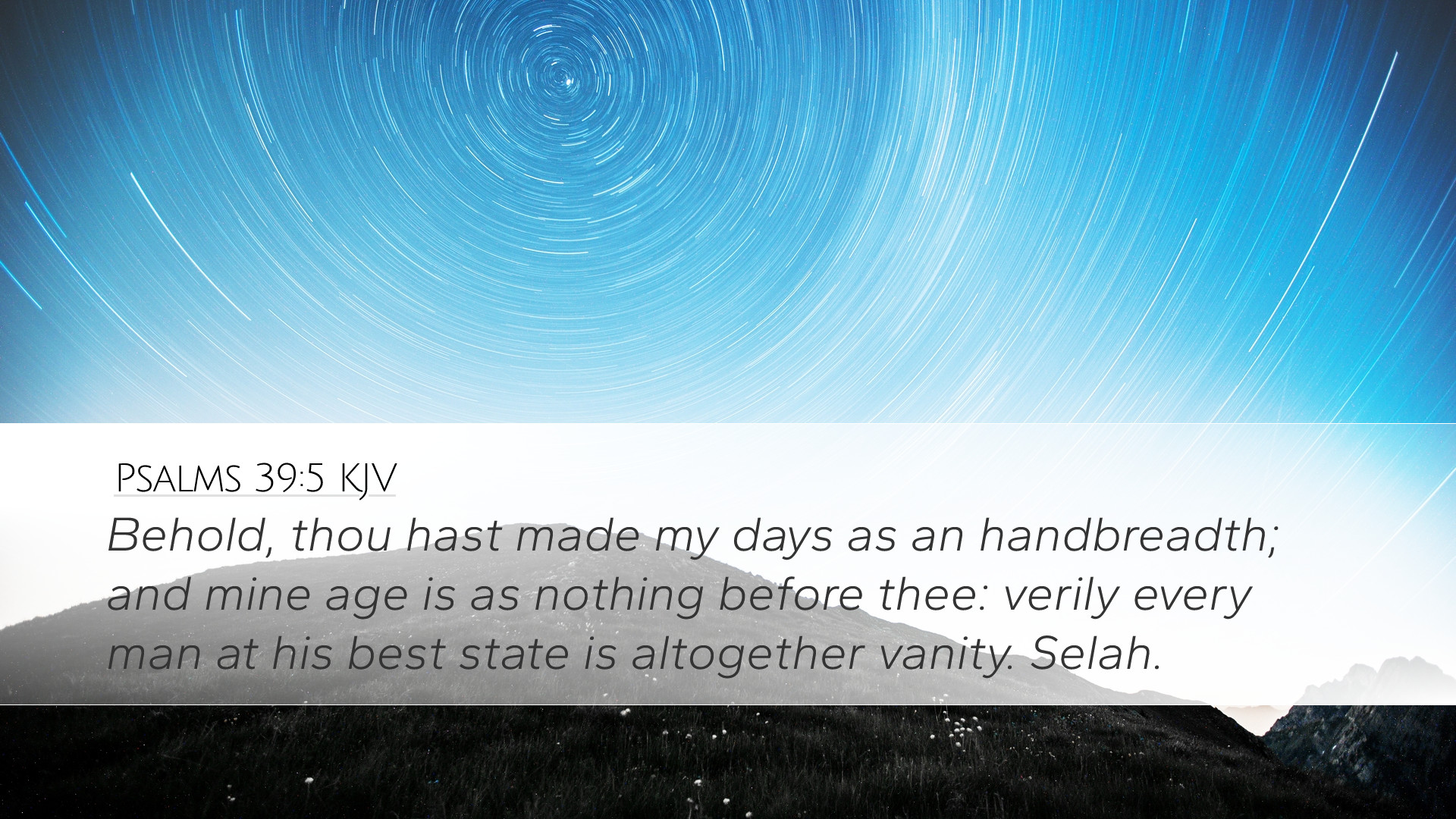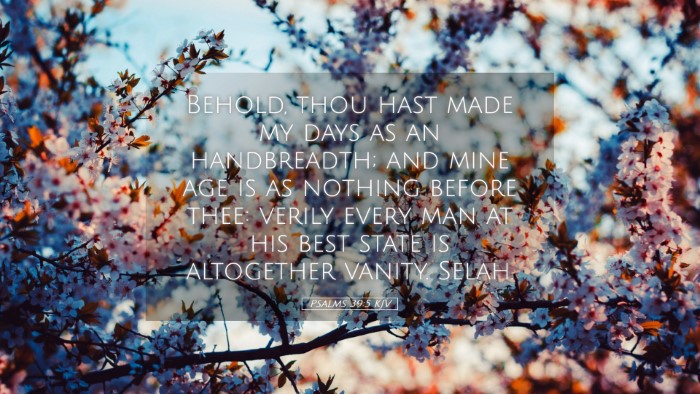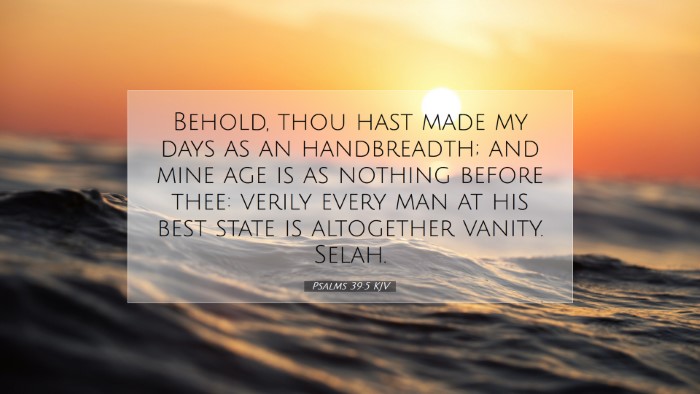Psalms 39:5 - A Commentary
Verse Text: “Behold, thou hast made my days as an handbreadth; and mine age is as nothing before thee: verily every man at his best state is altogether vanity. Selah.”
Introduction
The 39th Psalm presents a deep reflection on the brevity of human life and the vanity that accompanies our existence. Written by David during a time of personal anguish, this Psalm serves as a reminder of the transience of life and the might of God in comparison. Various public domain commentaries provide insights into its theological, emotional, and practical implications.
The Nature of Human Life
David begins by stating that God has made his days “as an handbreadth.” This metaphor signifies the shortness and frailty of human life. Matthew Henry notes that life is but a fleeting moment; a handbreadth is a very small measure, indicative of life's brevity. This realization brings humility, urging the believer to recognize their place in the grand design of God.
Albert Barnes emphasizes that the term “handbreadth” also suggests limitation and confinement. Our existence is not only short but is often constrained by circumstances beyond our control. This understanding calls for an appreciation of time as a valuable commodity to be spent wisely in service of God and others.
Adam Clarke expands on this by asserting that man’s duration is seemingly insignificant when placed beside the eternal nature of God. One's age, likened to nothing in God’s sight, points to the stark contrast between divine eternity and our mortal existence.
The Vanity of Humanity
David continues with the sobering assertion that “every man at his best state is altogether vanity.” Here, vanity refers to the fleeting desires and ambitions that characterize human life. Matthew Henry elaborates that even at our best, our inherent limitations and inevitable mortality tarnish our efforts and achievements.
Barnes reiterates the notion of vanity, explaining that even the most righteous and morally upright individuals have nothing to offer that can stand in the sight of God without His grace. This reflection positions humanity’s best efforts against the backdrop of divine holiness and the ultimate futility of self-reliance.
In the commentary of Adam Clarke, this verse serves as a powerful reminder of the futility of human pride. Despite one's accomplishments, life is transient, and without a proper understanding of our relationship with God, even the proudest among us are left empty.
Spiritual Implications
The Psalmist’s recognition of life’s brevity invites a deep introspection about the way time is spent. Matthew Henry suggests that upon understanding the transient nature of life, one should earnestly seek after eternal values, placing more emphasis on spiritual growth rather than worldly success.
From Barnes’ view, this realization should lead us to a state of humility, acknowledging the impotence of human effort against divine power. It invites believers to ground their hope not in earthly achievements but in the sustaining grace and mercy of God.
Adam Clarke calls upon the soul to focus on the eternal, urging individuals to meditate upon their mortality and the vastness of God's eternal plan, emphasizing the importance of preparation for life beyond the grave.
Practical Applications
- Prioritize Spiritual Growth: As life is fleeting, it is imperative to prioritize spiritual development and community engagement over material pursuits.
- Encourage a Humble Perspective: Understanding our limitations fosters humility in our interactions with others, pushing away pride and self-reliance.
- Focus on Eternal Truths: By focusing our lives on eternal truths, we align ourselves with God’s purposes and thus find true meaning.
- Live with Intention: Recognize each day as a gift from God; living with intention is key in fulfilling one's divine purpose.
Conclusion
In conclusion, Psalms 39:5 serves as a compelling reminder of the brevity and vanity of human life in the light of God’s eternity. Commentaries from Matthew Henry, Albert Barnes, and Adam Clarke illuminate the need for humility, the proper perspective on our temporal existence, and the imperative of living in alignment with divine will. As we meditate on this verse, let us resolve to value our brief lives for the glory of God, seeking eternity in every moment.


